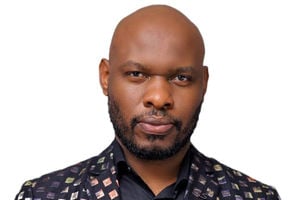To end the darkness- Uganda, Rwanda need to see each other in a new light

Author: Daniel K Kalinaki. PHOTO/FILE.
What you need to know:
- A strong, stable and prosperous Uganda is good for Rwanda, and vice versa. To end these recurring tensions we must accept and welcome this reality.
The boom-and-bust cycle of Uganda-Rwanda relations appears headed for an upward swing after recent diplomatic overtures facilitated by special envoy par excellence Adonia Ayebare, and sewn up by Lt. Gen. Muhoozi Kainerugaba. It is expected that they will be crowned by a bilateral meeting of the principals, probably on the side-lines of Chogm in Kigali, if not earlier.
It is surprising that many people are surprised by the rapprochement. Relations between senior officials on both sides of the border are deeply personal and often even familial. Ambassador Adonia has strong family ties on the other side, as did former Foreign Minister Sam Kutesa. Many protagonists in Kigali have friends, fans, funds, farms and family in Uganda.
The paths of the two men who met publicly last week crossed several times when one was still just a student. In fact, while few people will admit it, there is some deep-seated admiration for both principals on both sides of the border. Many Ugandans wish for the orderliness and let’s-get-it-done ethos in Rwanda; many Rwandans love the laissez-faire style and endless opportunities in Uganda. They want to chill with the big boys.
In the management of statecraft, this intimacy can be a double-edged sword. In good times, it allows extensive collaboration from day-to-day open borders and good neighbourliness, to highly classified sharing of end-user certificates or sharing of acquisition and maintenance costs.
In bad times, however, it amplifies every slight, makes every grievance deep-seated. The thuggish conduct of the Tanzanian occupying forces in the early 1980s does not evoke anything close to the angst that the mention of the word Kisangani creates.
Because state-to-state relations are intermediated through the existing state of person-to-person relations, it is also highly unpredictable. Investors across the border have to constantly read the mood, study the body-language, in case they are caught unawares by arbitrary decisions.
Every time key officials leave office or fall out of favour their successors have to build new bridges. If they have no family ties or NRA provenance they spend an inordinate amount of time in confidence-building measures, or remain ineffectual placeholders. We have learnt little and forgotten a lot from previous cycles of this boom-and-bust relationship. As we begin to mend relations once again, we should take steps to ensure we do not waste this crisis.
The overall objective should be to shift bilateral relations away from personalities to institutions to ensure that actions and reactions are guided by long-term national interests, not short-term personal sentiments. A permanent joint military commission could help build confidence within the security apparatus, guide intelligence sharing and the resolution of misunderstandings before they blow up into explosions.
This should be complemented by an inter-ministerial commission led by Foreign Affairs and with membership from Trade, Health, Internal Affairs, et cetera, to navigate the social-economic contours and provide evidence-based arguments to inform political decision-making.
For this to go anywhere, an important mental shift needs to happen on both sides of the border. The repeated comparisons of both countries in public discourse in both Kampala and Kigali feeds off and feeds into a sense of a zero-sum competition between us.
Progress in one country is seen as a loss for the other, a set-back in one feeds the schadenfreude in the other. This would be understandable if it was between big economies like China and the United States. In our case – two small, poor countries in the middle of nowhere where millions still go to bed hungry – it is a case of two bald men fighting over a comb.
Leaders on both sides must recalibrate the way we see each other. As we have seen with South Sudan, strong states with functional militaries are good for regional stability, not necessarily a threat to neighbours. A stable and economically prospering neighbour is better than a failed or failing state. Ugandans who used to import basic goods from Kenya now bring them in cheaper from China – but they use the savings to hang out in Nairobi or visit the parks there. A strong, stable and prosperous Uganda is good for Rwanda, and vice versa.
To end these recurring tensions we must accept and welcome this reality. We can only emerge out of this tunnel of darkness if we are willing to see each other in a new light.
Mr Kalinaki is a journalist and poor man’s freedom fighter.
[email protected]; @Kalinaki




